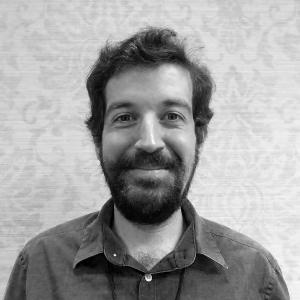Adam Mistler

Collecting Stories at the National Working Waterfronts and Waterways Symposium 2018
Collecting Stories at the National Working Waterfronts and Waterways Symposium 2018 is a project of Maine Sea Grant, College of the Atlantic, the Island Institute, and the National Working Waterfront Network.
National Capital Contracting
Adam Mistler is a dedicated professional in the field of ocean conservation, currently serving as the National Outreach Manager for Ocean Conservancy in Washington, D.C. He holds a degree in political science from Boston College and initially moved to D.C. to pursue a career in politics. His early career included an internship with Senator Bill Nelson of Florida, where he was introduced to various environmental issues, including the importance of red snapper in the Gulf of Mexico and the South Atlantic. Despite considering himself an urban boy, Mistler has always felt a strong connection to the ocean. This connection, coupled with his realization of the importance of ocean-related issues, led him to transition from politics to ocean conservation. In his role at Ocean Conservancy, Mistler works to connect people and organizations across the country, identifying gaps in knowledge and communication within the organization and working to fill them. He also strives to amplify the voices of local communities and stakeholders, recognizing the importance of their contributions to ocean conservation efforts. Mistler's work is driven by his passion for the ocean and his commitment to ensuring its health and sustainability for future generations.
Scope and Content Note
This interview with Adam Mistler, conducted by Katy Clark at the National Working Waterfront Symposium in Grand Rapids, Michigan, provides insight into Mistler's role as National Outreach Manager for Ocean Conservancy and his perspective on the importance of working waterfronts. Mistler discusses the challenges of engaging with people nationally to address local concerns and the importance of access to waterfronts for various communities. Mistler also shares his approach to his work, which involves connecting people and organizations, identifying gaps in knowledge and communication, and working to fill them. He discusses the importance of supporting and connecting local organizations and shares an example of how this approach has led to successful collaborations. Mistler also shares his personal journey from politics to ocean conservation and his passion for the ocean. The interview concludes with a discussion on the importance of face-to-face communication in building trust and understanding among stakeholders. This interview provides valuable insights into the work of ocean conservation and the challenges and opportunities associated with working waterfronts. Mistler attempts to engage with people nationally to make local concerns a “national chorus” through connections between people working on similar issues. He speaks about how waterfronts are connected by issues of access and highlights the importance of communicating “voice to voice.”
Please Note: The oral histories in this collection are protected by copyright and have been created for educational, research and personal use as described by the Fair Use Doctrine in the U.S. Copyright law. Please reach out Voices@noaa.gov to let us know how these interviews are being used in your research, project, exhibit, etc. The Voices staff can help provide other useful resources related to your inquiry.
The NOAA mission is to understand and predict changes in climate, weather, oceans, and coasts, to share that knowledge and information with others, and to conserve and manage coastal and marine ecosystems and resources. The Voices Oral History Archives offers public access to a wide range of accounts, including historical materials that are products of their particular times, and may contain offensive language or negative stereotypes.
Voices Oral History Archives does not verify the accuracy of materials submitted to us. The opinions expressed in the interviews are those of the interviewee only. The interviews here have been made available to the public only after the interviewer has confirmed that they have obtained consent.
